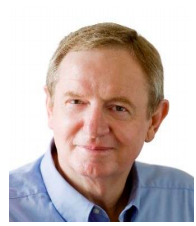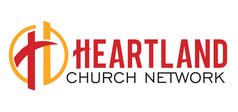|
How many of you knew that Wednesday, October 20th was Information Overload Awareness Day? I heard about it on the radio during my morning commute—I listen primarily to hear the traffic report, but I occasionally get a few nuggets of useful information. As I Googled it to see what I was missing, I learned “this day is for taking a step back from the amount of information we’re faced with on a daily basis. From social media and online news to emails and text messages, we’re constantly bombarded with a plethora of information. On this day, we allow ourselves to take a break.” The fact that there is an Information Overload Awareness Day forced me to spend time discovering what I had been missing. As I read about it, I realized that if I had actually observed the day correctly, I would not have taken time to know the real purpose for the day. And now my mind is filled with the knowledge that there needs to be another Information Overload Awareness Day, and real soon, so I can observe it correctly.
Bottom line is, hearing that there is an actual Information Overload Awareness Day, forced me to take time to learn what it meant. And in taking time to discover what it was, I actually violated the very purpose for which it was created—I went into information overload! That knowledge made me long for simpler times when we didn’t have immediate access to information. As a kid, we listened to KASL—a local AM radio station where I remember listening to my two favorite programs: the Lone Ranger and Cisco and Poncho. At that time I was actually a part of the information dissemination process. As a paperboy, I delivered the Denver Post, while other boys delivered the Rapid City Journal to those who were subscribers —both of them were daily papers. We also had Newcastle’s Newsletter Journal that provided local information on a weekly basis. Then things got exciting—we got a television set when I was in third grade. We had two channels—when the booster tower was working. But they weren’t 24-7 stations back then. At that time we lived only a few blocks from the county library, so I made a lot of trips there—particularly in the summer. And then one day, we got a set of encyclopedias, and suddenly my world of knowledge exploded! Yes, I read the encyclopedia. What a change in the scope of one short lifespan. Today, we have instant access to unlimited sources of information, misinformation, and disinformation. Our problem isn’t ACCESS; it is the ABILITY to evaluate the credibility of the sources and to process the substance of the information so that we can make the appropriate APPLICATION of that knowledge. As you pause to consider the glut of information you have at your fingertips, how do you respond? Some of us quickly conclude that “Ignorance is Bliss.” Now there is a kernel of truth in that cliché because God asked Adam and Eve to not eat from the Tree of the Knowledge of Good and Evil. He was trying to limit their exposure to evil. However, once “that cat was out of the bag,” it has been impossible to return to a state of innocence by simply remaining ignorant. In fact, Proverbs 18:15 encourages us to seek knowledge: “The heart of the prudent acquires knowledge, and the ear of the wise seeks knowledge.” So should we go to the other extreme and seek to fill our minds with “all knowledge?” The champions on Jeopardy seem to do pretty well with that philosophy. However, I quickly see three basic problems with this strategy. One is that a mind full of knowledge generally generates a heart full of pride. “We know that we all have knowledge. Knowledge puffs up, but love edifies. And if anyone thinks that he knows anything, he knows nothing yet as he ought to know. But if anyone loves God, this one is known by Him” (I Cor. 8:1-3). Another issue is the one Solomon encountered as he sought “all knowledge.” In the end, his summary of this way of life was, “Be admonished…of making many books there is no end, and much study is wearisome to the flesh. Let us hear the conclusion of the whole matter: Fear God and keep His commandments, for this is man’s all. For God will bring every work into judgment, including every secret thing, whether good or evil” (Ecc 12:12-14). In other words, there are certain topics and areas of knowledge that have more eternal value than other areas do. Proverbs 15:14 states it this way, “The heart of him who has understanding seeks knowledge, but the mouth of fools feeds on foolishness.” A third issue we face in our pursuit of “all knowledge” is our time constraint. We are not an eternal God, but are constrained by the limits of time—we will NEVER know it all. But in an effort to be like God, we take shortcuts in our pursuit of all knowledge. For example, we scan e-mails and miss important information. I replied to an e-mail last week requesting specific information. In my reply, I clearly provided the information requested in the order it was requested. I received a second e-mail with “significant typos” that impacted the meaning along with a somewhat terse request for information I had already provided. Their “scanning” cost me time—but before I got too hyped up, I admitted that I have done the same thing. Or, how often do we “assume” that the headline on a news article is accurate? Too often when I have taken time to actually read an article—and some of them can get pretty long—I have found buried deep in the article a statement that actually makes the headline false. Basing my knowledge on what I gleaned by scanning, or listened to a short sound-bite, or relying on a headline to be accurate WILL ALWAYS get me in trouble. So what should we do so we can be informed and engaged? I just alluded to the most important one--we need to be still and know that He is God (Psalm 46:10). Paul gives us two additional items that will also help: 1) Fill our minds with the right information. “Whatever things are true, whatever things are noble, whatever things are just, whatever things are pure, whatever things are lovely, whatever things are of good report, if there is any virtue and if there is anything praiseworthy—meditate on these things” (Phil. 4:8). 2) Fill our lives with the right actions. “The things which you learned and received and heard and saw in me, these do, and the God of peace will be with you” (Phil. 4:9) Yours in Christ, Mark R. Elliott, AMS
0 Comments
Leave a Reply. |
AuthorRetired in April 2022, Mark R. Elliott served as a Director of Missions (Associational Mission Strategist) in Western Iowa and Eastern Nebraska for almost three decades. He is a strong advocate for obedience and Biblically based disciple making. As such, he knows that making healthy disciples requires Christian leaders to be constantly pursuing spiritual maturity—be lifelong learners. Because of the time constraints of ministry, most pastors focus their reading list on resources that assist them in teaching and preaching the Word of God. As such, books focusing on church health, leadership development, and church growth tend to find their way to the bottom of the stack. With that reality in mind, Mark has written discussion summaries on several books that have helped him to personally grow in Christ and that tend to find themselves on the bottom of most pastor’s stack. Many pastors have found them helpful as they are able to more quickly process great insights from other pastors and authors. Archives
April 2022
Categories |
Looking for something? |
© COPYRIGHT 2024. ALL RIGHTS RESERVED.
|




 RSS Feed
RSS Feed
